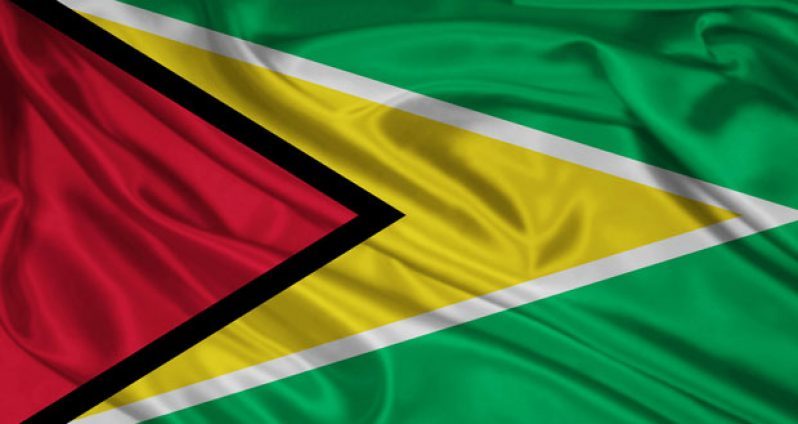–rejects Maduro’s ‘offensive, undignified’ statements
IN response to escalating aggression from neighbouring Venezuela, the Government of Guyana has issued a stern warning that the latest attempt by the nation to annex more than two-thirds of Guyana’s sovereign territory will not be allowed.
In a statement issued on Thursday, the government addressed the recent promulgation of the “Organic Law for the Defence of Guayana Esequiba” by the Venezuela’s president Nicolás Maduro.
Describing the action as “a flagrant violation of the most fundamental principles of international law,” Guyana reaffirmed its commitment to upholding the principles enshrined in the United Nations Charter, the Charter of the Organisation of American States, and customary international law.
The government highlighted that this move by Venezuela contradicts the spirit of the Joint Declaration of Argyle for Dialogue and Peace, signed in December 2023.
“It is unfortunate that the commitment made at Argyle to the pursuance of good neighbourliness, peaceful coexistence, and the unity of Latin America and the Caribbean is now again seriously threatened by President Maduro’s words and action today [Thursday],” the statement read.
Moreover, Guyana reminded both Venezuela and the international community of the proper channels for addressing territorial issues. Referencing the 1966 Geneva Agreement, Guyana emphasised the jurisdiction of the International Court of Justice in settling disputes, asserting that any contestation of territory should be brought before the Court.
“If Venezuela wants to contest title to the territory in question, the proper forum is the International Court of Justice, which will decide the issue objectively and according to the law,” the statement outlined.
The government also took note of the “offensive and undignified” statements made by President Maduro about President Dr. Irfaan Ali, positing that such remarks were unworthy of diplomatic discourse.
As such, Guyana’s government reiterated its steadfast commitment to the principles of the United Nations Charter, the Rule of Law, and the peaceful settlement of disputes.
However, Guyana issued a firm warning that it “will not countenance the annexation, seizure, or occupation of any part of its sovereign territory”.
Recently, lawmakers allied to Venezuela’s President approved the creation of a new state in Guyana’s resource-rich Essequibo region.
Despite ongoing proceedings before the International Court of Justice (ICJ), Venezuela has attempted to assert itself to lay claim to Guyana’s territory, citing a December referendum as a so-called “justification”.
Guyana, however, remains steadfast in its position, asserting that its borders are non-negotiable, and reaffirming its sovereignty over the region.
Highlighting the gravity of the situation, President Ali recently acknowledged Venezuela’s aggressive posture, stating: “We are dealing with a neighbour that is aggressive; that has made certain threats.”
He outlined Guyana’s proactive measures, including investments in military capabilities and infrastructure, to deter any potential aggression. However, President Ali pointed out that Guyana’s first line of defence is diplomacy.
“We are investing in our military; we are investing in the technology of our military. We are investing in infrastructure,” he said.
President Ali underscored the importance of international support, noting endorsements from key allies such as the United States, the United Kingdom, France, Canada, and regional bodies like the Caribbean Community (CARICOM).
He underscored the significance of this coalition in deterring destabilising actions from Venezuela, stating: “We are working on the basis of an international coalition that would not allow this region to be destabilised by any action by Venezuela to overrun our territorial integrity or our borders.”
President Maduro has also accused the US of having placed “secret military bases” and Central Intelligence Agency (CIA) headquarters in Guyana to attack the population of southern and eastern Venezuela.
Attorney-General and Minister of Legal Affairs Anil Nandlall, S.C., had recently said that these claims have long been dismissed, deeming it to be “baseless” and is being used by the Maduro regime to advance a false narrative.
The United States had denied that it has plans to set up a military base in Guyana. Guyana’s government has made no request to establish such a base here.
Venezuela, with no evidence, has been weaponising commentaries made on social media by persons to propagate a distorted narrative on the border controversy.
Addressing the talks with Venezuela, Nandlall detailed during the meeting in St Vincent, President Maduro’s use of public statements critical of ExxonMobil’s operations and other activities in Guyana.
The Venezuelan President reportedly compiled a dossier of these statements, attempting to leverage them in support of his narrative.
In 2018, Guyana took a decisive step by approaching the ICJ seeking affirmation of the 1899 Arbitral Award’s legitimacy.
Venezuela, taking a defiant stance, initially claimed that the ICJ lacked jurisdiction, a contention flatly rejected by the World Court in a crucial ruling in December 2020. The door was thus opened for the ICJ to delve into the merits of the substantive case.
The substantive case, which highlights the historical context and the 1899 Arbitral Award, remains before the World Court.



.jpg)








